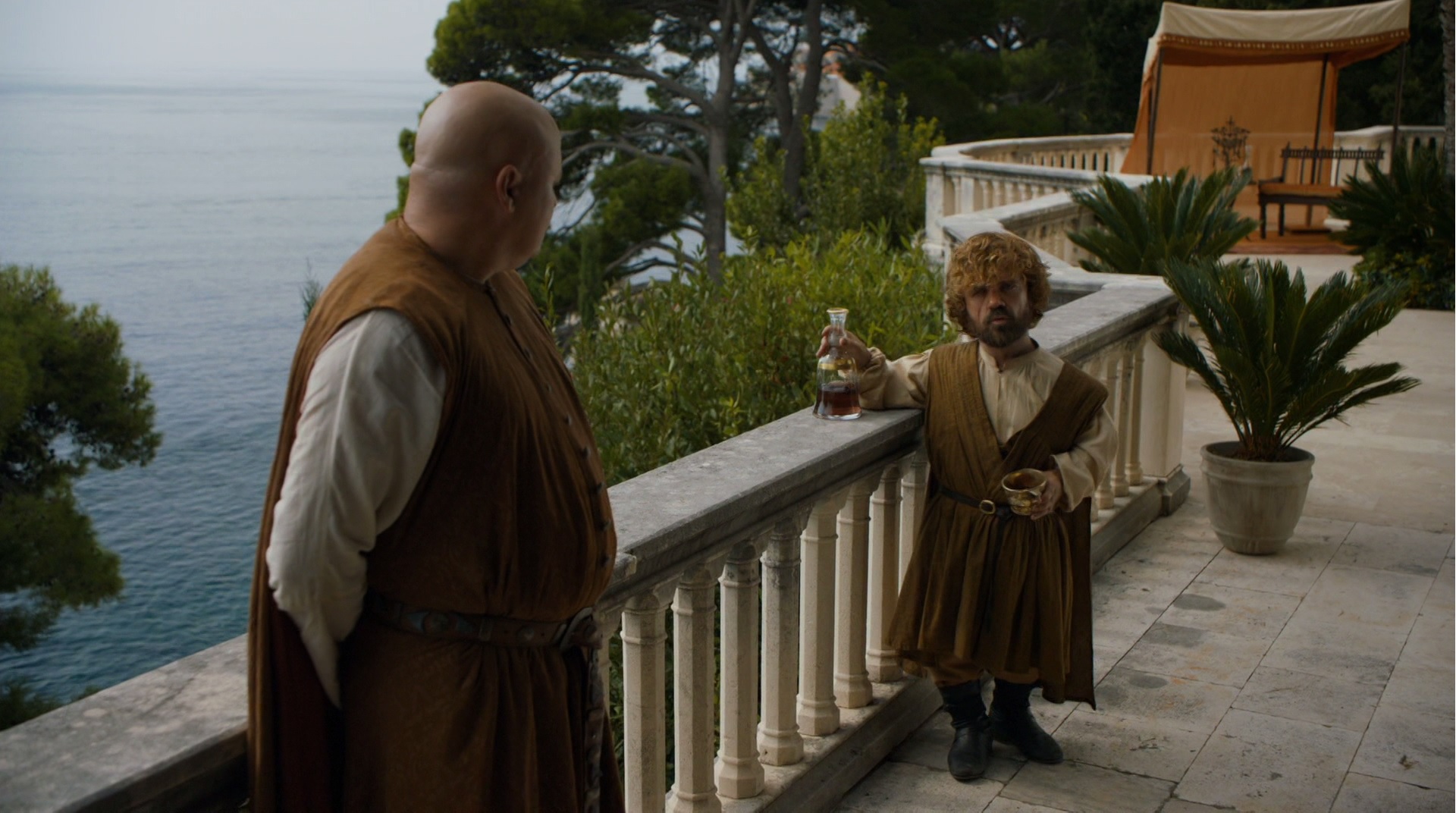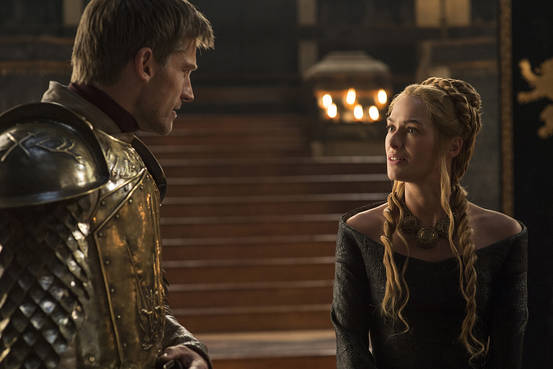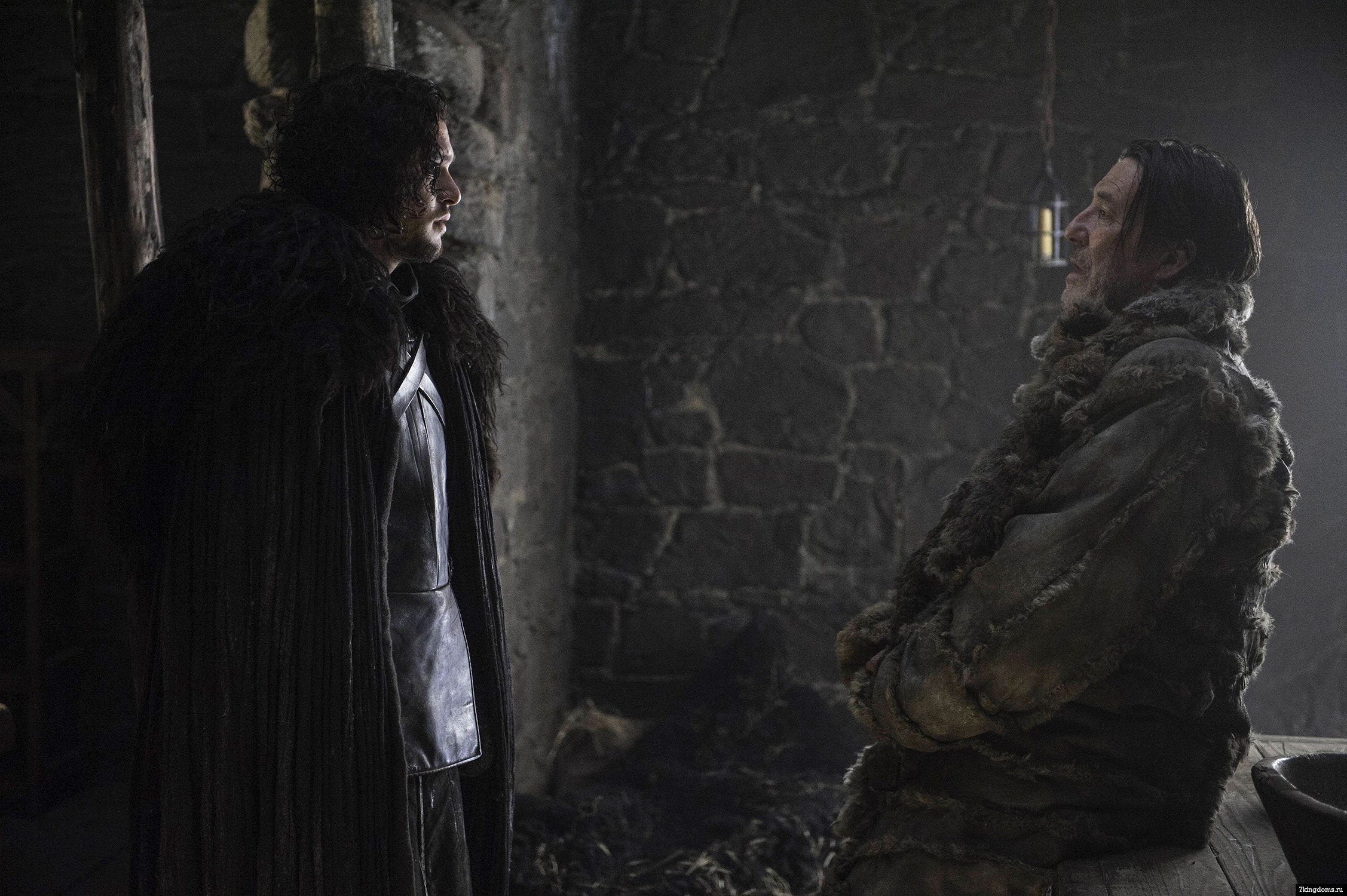he first episode of “Game of Thrones”’ newest season builds up towards something, but does little else.
The critically-acclaimed show might have begun resting on its laurels and banking on the fact that it’s far too big to fail. Sure, the settings and dragons are as big, gorgeous and expensive as you’d come to expect, but CGI alone won’t get you from zero to 60.
Solid cinematography and creative shots (plus a budget of about $6 million per episode, ) make the show one of the most visually rich on television, while the promise of more gratuitous violence and nudity allows “Game of Thrones” to keep wearing its ‘edgy’ badge with pride.
The premiere suffers from what ailed the past season openers: an assumption that the audience can’t remember what happened a year ago. By cramming the entirety of its massive cast into a single hour-long episode, writers David Benioff and D.B. Weiss sacrifice narrative focus in order to reteach everyone’s names to the audience. Each storyline gets a handful of minutes before cutting off, having gone nowhere new.

A good chunk of the episode is tonally off — moments that should be tender are forced and awkward, while moments that intend to intimidate are merely uncomfortable. That aside, snappy dialogue (with all the best lines naturally going to scenes involving Tyrion (Peter Dinklage), Varys (Conleth Hill), or both Tyrion and Varys) kept things moving, albeit with a few awkward lines and poor delivery.
Spoilers below
T
he season kicks off with a flashback and a prophecy, two things Benioff and Weiss had previously avoided. Young-Cersei Lannister reveals that her future self has good reason to antagonize Margaery Tyrell (Natalie Dormer) , who could possibly be the “younger and more beautiful” queen to bring about Cersei’s downfall. As the queen regent, Cersei (Lena Headey) should be maneuvering a political climate that is increasingly threatening towards her, but the episode has her do little more than glare at Margaery instead. While the two queens do not interact in this episode, Cersei’s canceled marriage to Loras and Margaery’s continued advances towards newly-crowned King Tommen clearly foreshadow a bristling confrontation.

Twins Jaime (Nickolaj Coster-Waldau) and Cersei have a confrontation of their own in the breathtaking Sept of Baelor, lobbing guilt-trips at each other over their father’s corpse in one of the episode’s better-written bits of dialogue. The scene of Lannisters arguing over other Lannisters while dead Lannisters loom in the background is a fantastic representation of how the dysfunctional house’s greatest battle is against itself.
While two queens are in conflict in the south, Jon Snow (Kit Harington) is caught between two kings up in the North. King Stannis Baratheon (Stephen Dillane) intends to remove the Boltons from Winterfell, and demands King Beyond the Wall Mance Rayder’s (Ciarán Hinds) fealty in order to do so. Stannis tells Jon of this after a particularly awkward, but not quite funny ride to the top of the Wall: evidence that uncomfortable elevator rides are an unavoidable evil in Westeros as well. Inquiries about one’s virginity are thorny, but Harington’s Zoolander-esque Blue Steel pout isn’t an appropriate response.
Most striking (and unexpected, as the scene was not exactly in the books) was Mance’s death on a pyre for his refusal to comply, and what that could spell for the Wildlings. The arrow Jon Snow fired into Mance’s heart from a higher platform — and moral ground — was a mercy kill that carried the complicated morality that defines “Game of Thrones”. Both Mance’s lasting ideals of freedom and the threat of a similar fate hang in a balance and will determine whether or not the Wildlings will support Stannis’ campaign in future episodes.

Across the Narrow Sea, director Michael Slovis’ creative POV shots document Tyrion’s dramatic unboxing from the crate that shipped him to freedom. At first, Tyrion is less quick to make the clever quips that endear him to viewers, choosing to spurt some nihilism and vomit and leave the wit to Varys, his rescuer, instead. The duo will take their banter over to the court of Daenarys Targaryen (Emilia Clarke), and hopefully help her navigate the frustrating, directionless narrative she’s wound up in.
Scenes over in Dany’s kingdom are a touch off. The moments before one of her Unsullied soldiers, White Rat, is murdered are awkward to watch, though the intention to contrast tender vulnerability with sudden violence is clear. Later, Dany herself is shown sitting steeple-straight at her bench-throne, hands clasped like a good student hoping to get dismissed from class early, not a queen dispensing justice.

Clarke also dispenses the most unfortunate line of the episode with less life in the upper half of her face than Tywin Lannister’s corpse: “I’m not a politician, I’m a queen.” Strange coming from the girl who previously insisted “I’m not a queen, I’m a Khaleesi,” and whose rule is ineffective largely due to her failure to address politics. But Dany has bigger things to worry about, to be fair: two dragons in the midst of teenage rebellion and another gone AWOL.
Despite slip-ups in tone and writing , “The Wars to Come” does a fine job of implying that there are, in fact, wars to come. It’s been an uncomfortable, uninspired elevator ride up the rising action, but maybe we’ll soon get to quit waiting for winter to come.







